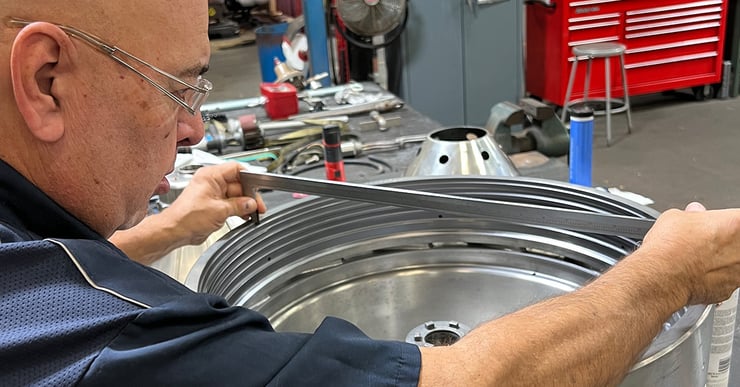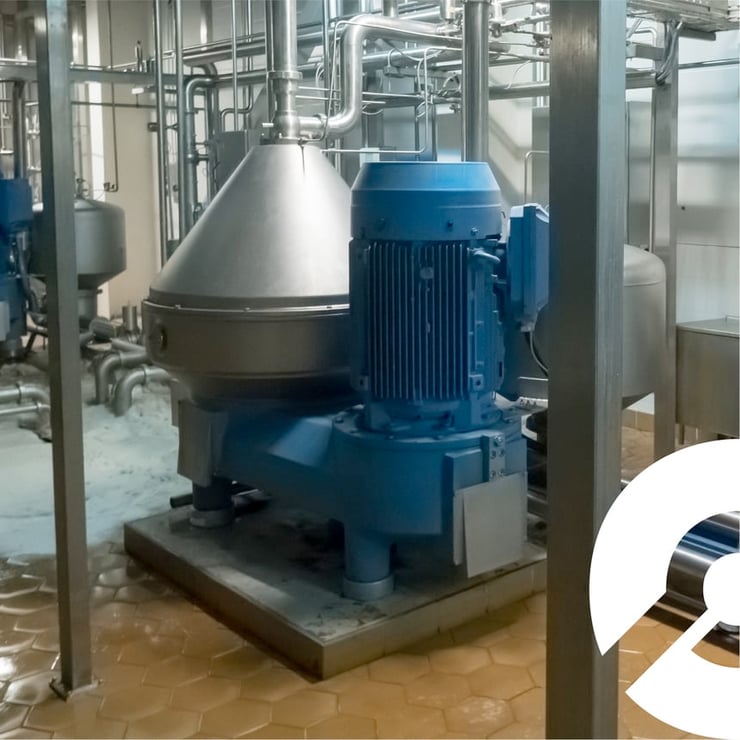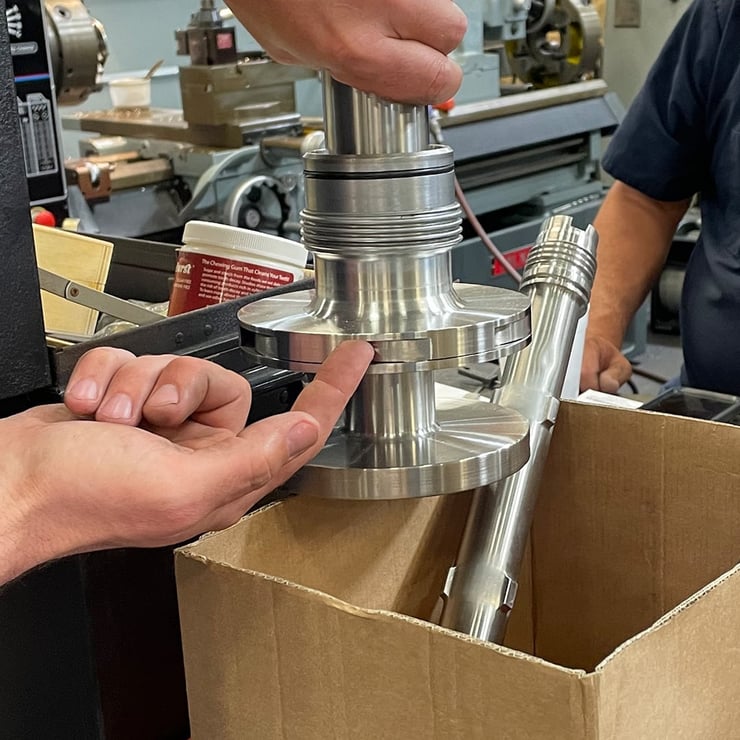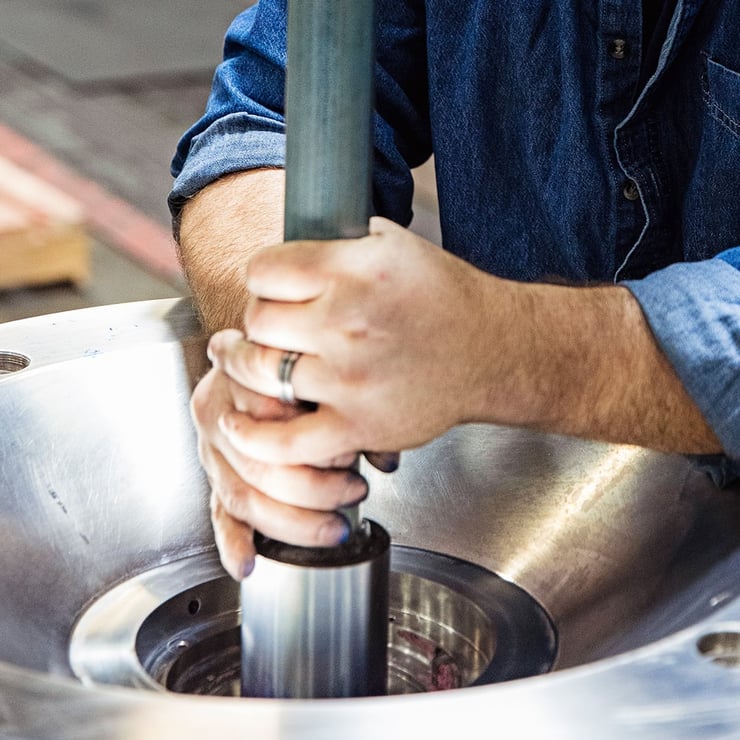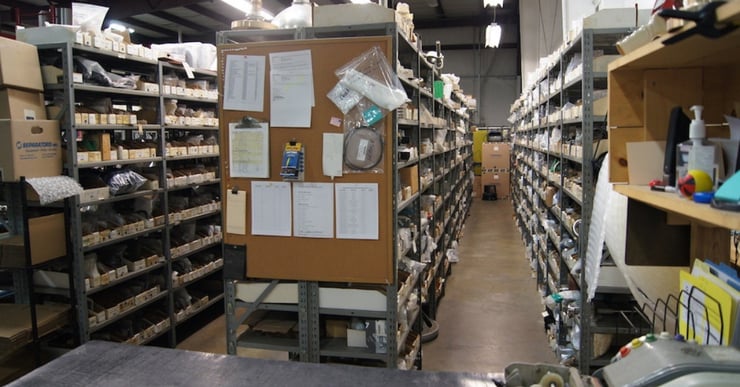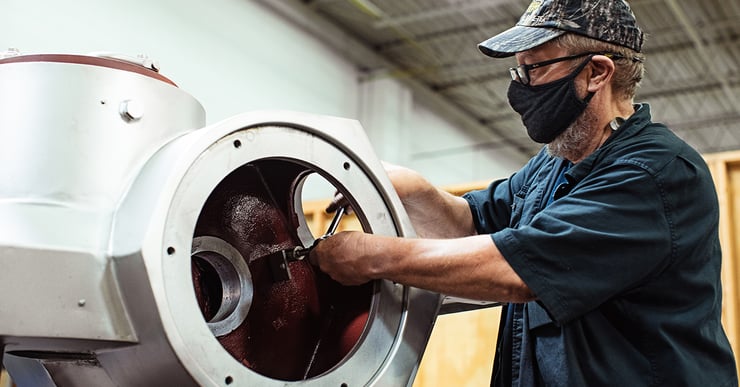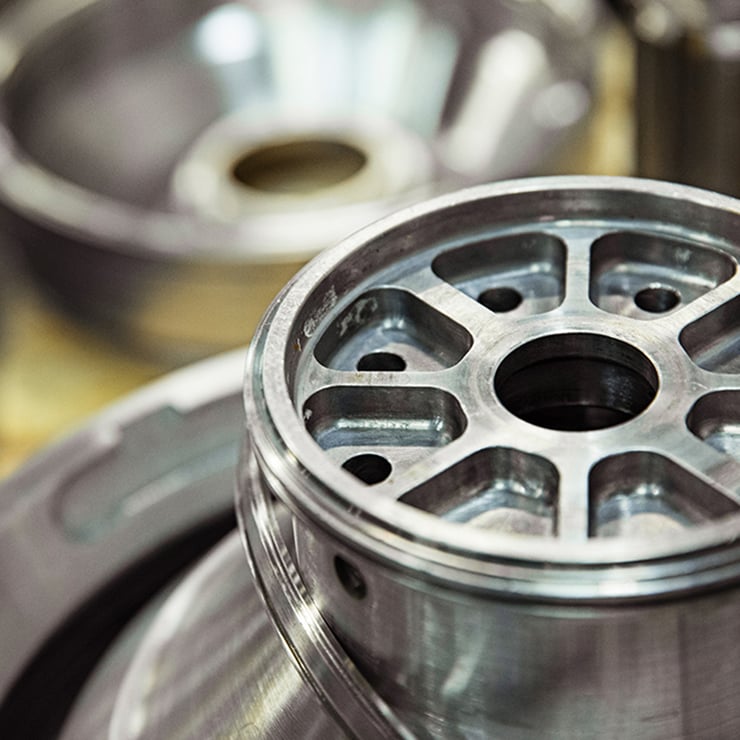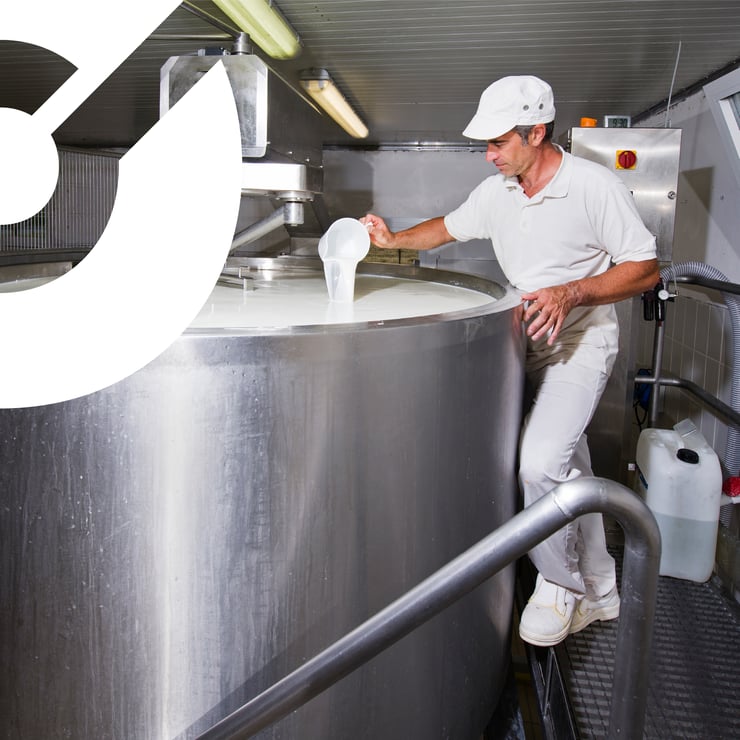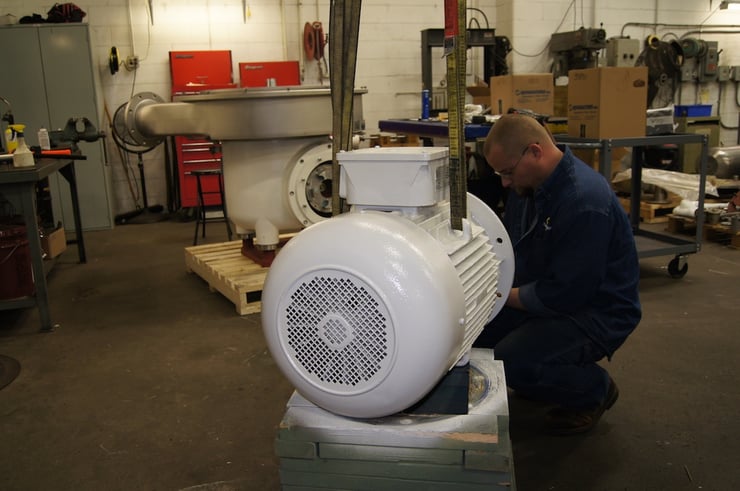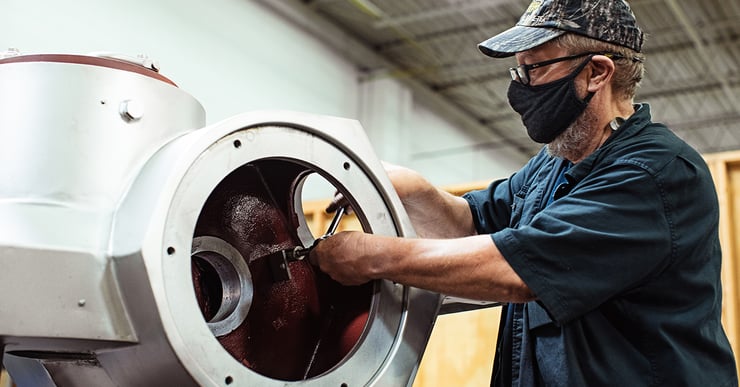Search Separators
Recent Posts
How to Balance a Centrifuge (And Why It’s Important!)
Centrifuges are massive, powerful machines. While these machines operate in a simple, consistent manner, the moment a centrifuge bowl becomes unbalanced, the centrifuge quickly becomes one of the most dangerous pieces of equipment on your production floor.
3 Signs You Need to Repair or Replace a Centrifuge Pump
While they remain stationary, centrifugal pumps are one of the most critical parts of your centrifuge. So when they stop working as they should, it’s important to swap them out as soon as possible.
Repairing Your Centrifuge Pump vs. Buying New
Chances are you won’t know that your centrifuge pump needs repair until you have to stop your production line. Unfortunately, a pump is no small purchase, with some plants spending anywhere from $25–$60k on these pivotal pieces of equipment.
5 Tips for Industrial Centrifuge Troubleshooting
Unexpected downtime means lost revenue (and usually lost product). So knowing how to troubleshoot when your centrifuge experiences issues is critical to getting back up and running to meet your production volume goals.
Need Centrifuge Parts? We Have Thousands in Stock
At any given time, we have over 4,000 centrifuge parts in stock at our warehouse. Why? Because it helps make sure we have what you need, when you need it. After all, providing centrifuge service and repair is one of the primary components of our business — in order to do this well, we need to have the right materials on hand.
Skip the Workarounds: How to Optimize Your Production Process
All too often, issues with a centrifuge’s separation process aren’t related to the centrifuge itself. Instead, the culprit is often found within other areas of the production line.
When it comes to troubleshooting and diagnosing a process problem, many technicians look to the centrifuge first — but this is a common mistake, as it’s not the most efficient or effective way to go about fixing your problem.
4 "Upstream" Equipment Issues (That Aren't Your Centrifuge)
Issues in your production line can lead to expensive downtime (and cause major long-term problems). While stopping an issue before it happens is the best way to protect your investments, troubleshooting your operations isn’t always easy.
What Does a Dairy Centrifuge Do?
Centrifuges are an essential part of every dairy plant — without them, we wouldn’t have many of the dairy products sold on shelves today.
Ensure Your Centrifuge Equipment is Operating at Peak Efficiency
If your centrifuge separator isn’t running at peak efficiency, you’re leaving dollars on the table. Simple as that. Depending on the product you’re running and the overall setup of your process, the variables that can cause your separator to under perform are countless.
4 Signs Your Centrifuge Could Use a Health Check
Centrifuge equipment failure is an abrupt and hazardous event that can halt your operations at a moment’s notice. While this equipment failure may seem sudden, there are a few telltale signs that something in your centrifuge is not working the way it should.
